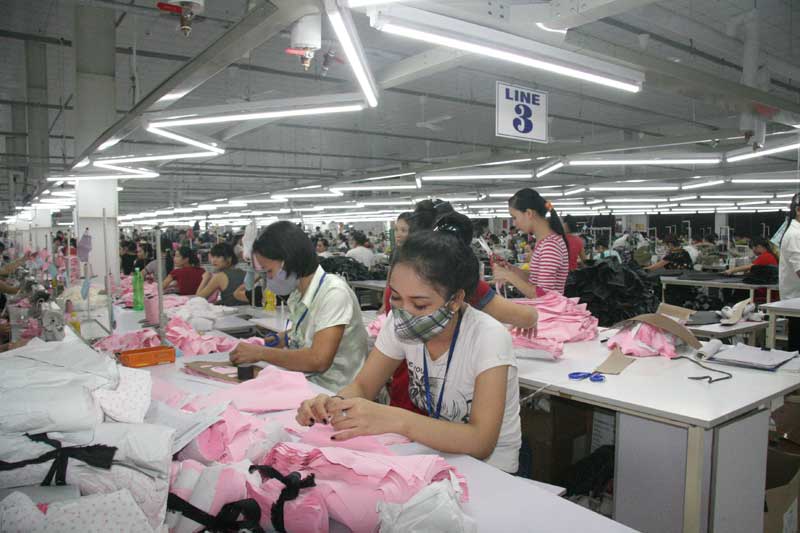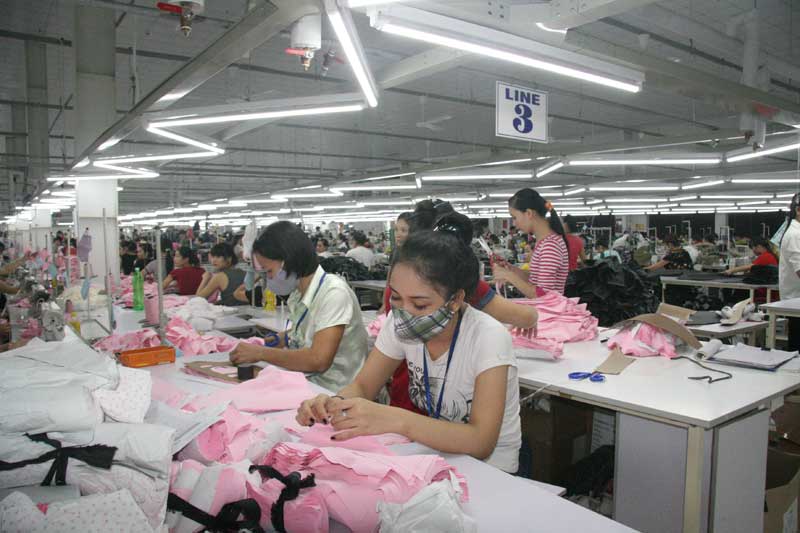
(HB0) – Hoa Binh province gave the green light to investment plans for two domestic investment projects with a total registered capital of 200 billion VND in May, according to the report of the provincial People's Committee on the socio-economic situation in May and the first five months of 2020.
In the first five months of this year, the
province approved investment plans for 17 projects, including 16 domestic
investment projects with a combined registered capital of over 3,9 trillion VND
and one direct foreign investment (FDI) project worth 0.4 million USD.
 GGS Vietnam Co., Ltd., located in the
Da River Left BankIP (Hoa Binh city,) has created jobs for more than
1,000 local laborers.
GGS Vietnam Co., Ltd., located in the
Da River Left BankIP (Hoa Binh city,) has created jobs for more than
1,000 local laborers.
The whole province now has a total of 582
investment projects, including 40 FDI projects with a total registered capital
of 573.6 million USD and 542 domestic investment projects, capitalized at 84.5
trillion VND.
According to data from the Hoa Binh Provincial Party Committee, the industrial production index for the first six months of 2025 is estimated to have increased by 20% compared to the same period last year. This marks the highest year-on-year growth rate for this period since 2020.
In the first six months of 2025, Hoa Binh province’s export turnover was estimated at 1.145 billion USD, marking an 18.11% increase compared to the same period in 2024. Import turnover was estimated at $ 804 million, a 17.15% increase, which helped the province maintain a positive trade balance.
The lives of the ethnic minority farmers in Tan Lac district have gradually improved thanks to the new directions in agricultural production. This is a testament to the collective strength fostered through the professional associations and groups implemented by various levels of the district’s Farmers’ Union.
With the motto the "product quality comes first,” after nearly one year of establishment and operation, Muong village’s Clean Food Agricultural and Commercial Cooperative, located in Cau Hamlet, Hung Son Commune (Kim Boi district), has launched reputable, high-quality agricultural products to the market that are well-received by consumers. The products such as Muong village’s pork sausage, salt-cured chicken, and salt-cured pork hocks have gradually carved out a place in the market and they are on the path to obtaining the OCOP certification.
In the past, the phrase "bumper harvest, rock-bottom prices" was a familiar refrain for Vietnamese farmers engaged in fragmented, small-scale agriculture. But today, a new spirit is emerging across rural areas of Hoa Binh province - one of collaboration, organisation, and collective economic models that provide a stable foundation for production.
Maintaining growing area codes and packing facility codes in accordance with regulations is a mandatory requirement for agricultural products to be eligible for export. Recently, the Department of Agriculture and Environment of Hoa Binh province has intensified technical supervision of designated farming areas and packing facilities to safeguard the "green passport" that enables its products to access international markets.



 GGS Vietnam Co., Ltd., located in the
Da River Left BankIP (Hoa Binh city,) has created jobs for more than
1,000 local laborers.
GGS Vietnam Co., Ltd., located in the
Da River Left BankIP (Hoa Binh city,) has created jobs for more than
1,000 local laborers.